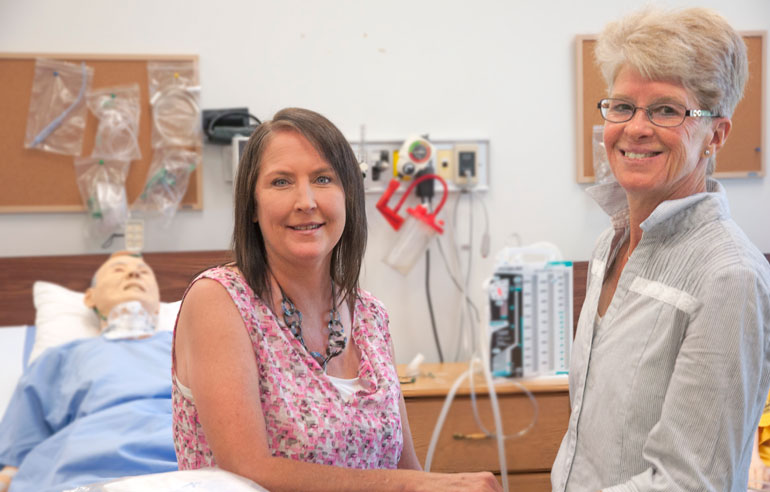
UBC professors, Rachelle Hole (left) and Kathy Rush have shown that older adults who have been discharged from the hospital following serious ailments tend to minimize or even lie about the risks related to their condition.
Everyone lies, including seniors.
According to a new study from UBC, older adults who have been discharged from the hospital following serious ailments tend to minimize or even lie about risks related to their condition and its management in order to avoid being seen as vulnerable.
“These patients want to return to a “normal” pre-hospitalization life immediately, even if it is no longer possible” says Rachelle Hole, associate professor of Social Work at UBC’s Okanagan campus and the study’s co-author. “This will lead them to downplay, hide or mask their risks. These strategies may backfire and result in rehospitalisation, relapse, or worse.”
The study involved profiling older adults—with an average age of 82 years—recently discharged from the hospital, following a heart-related event, such as a heart attack. When asked about their post-hospital health risks, capabilities, and their self-perception the participants preferred to highlight their abilities rather than discuss their risk for future health issues, complications or relapse.
The group associated the admission of a health risk with being disabled, incompetent and no longer independent.
“These findings suggest that the type of conversation health care providers have may significantly influence the patients’ well-being,” says co-author Kathy Rush, associate professor of Nursing. “Seniors equate risk with loss and it may be more beneficial to change the conversation to focus on strengths.
“It may also be useful to communicate standardized instructions with the family present to ensure a smooth transition from hospital to home.”
Today, one in seven Canadians is aged 65 or over. By 2036, this will increase to almost one in four. Many older adults are at risk of rehospitalisation, during the first weeks following discharge, a risk often associated with physical weakness, new and unfamiliar medications and new psychological issues
This research, recently published in The Gerontologist, was funded by UBC Okanagan’s Faculty of Health and Social Development.